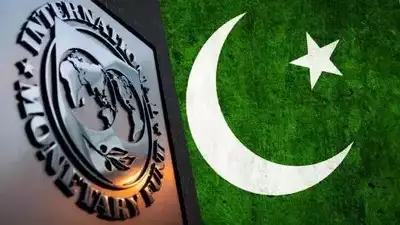International Monetary Fund (IMF) recently announced that it may not be able to lend more funds to Pakistan as they already have a huge debt to repay.
As Pakistan continues to struggle due to lack of forex reserves, and poor governance, Pakistan Defence Minister Khawaja Asif, on Saturday said, “You may have learnt that Pakistan is going bankrupt or that a default or meltdown is taking place. We are living in a bankrupt country.”
The statement by the Defence Minister has caused a chaos all across Pakistan and people now have a lot to worry about.
Currently, Pakistan is facing decades-high inflation and low forex reserves due to huge debt repayments. Last week, Pakistan’s forex reserve came down to nearly $3.19 billion, which the neighbouring country claims will last no longer than 2 weeks. This leaves the country with a question as to what is the next step to keep the economy afloat.
The crisis reached another level when several big companies announced that they will halt the operations in Pakistan. The reason behind the move was scarcity of raw materials and forex reserves.
According to media reports, Maruti Suzuki, on Friday, announced that it has extended the shutdown of its local manufacturing plant until February 21, citing shortage of parts. Similarly, Ghandhara Tyre & Rubber Company, which manufacture tires, halted its operations in the neighbouring country.
The current crisis resembles the Pakistani crisis of 1971, when they lost the war against India. This was the year when Bangladesh was formed. All things considered, Pakistan’s people are the ones suffering the most as the prices of essential items are surging. For instance, milk is now being sold at a cost Rs 250/litre, and chicken prices have gone up tp Rs 780/kg in the neighbouring country.
The International Monetary Fund (IMF) has suggested Pakistan to tax the rich in order to save the poor, who are starving amid the economic crisis, according to media reports.
In 2019, IMF Executive Board approved $6 billion 39-month Extended Fund Facility (EFF) arrangement for Pakistan. The EFF-supported program was to help Pakistan reduce economic vulnerabilities and generate sustainable and balanced growth.

